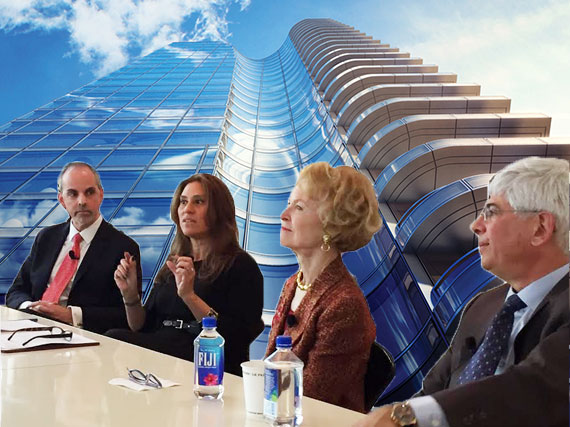Condominium buyers along the East River in places like Queens West and Brooklyn Bridge Park face an uncertainty that’s perhaps more nerve-wracking than the potential of another 100-year flood drowning their lobbies.
There are some 100 land-leased co-op buildings in the city, and as owners there will attest, it can become trickier to sell a home as the lease term nears expiration – even if that day is as far as 30 years down the road.
And when it actually comes time to renegotiate the land lease, costs like carrying charges and new mortgages can become prohibitively expensive.
A handful of co-op owners at Trump Plaza, for example, were squeezed out after the board decided to buy the building’s land lease for $190 million.
But while those co-opters find themselves at the mercy of private landlords at the end of the lease term, condo owners on land leased at places like Battery Park City and Roosevelt Island can rest a bit easier, experts say.
That’s because state law only allows condos to be built atop land leased from city or state agencies. And the government, these experts say, is comparatively easygoing.![]()
“The government is a very flexible landlord,” Ross Moskowitz, an attorney at Stroock & Stroock & Lavan, said during a panel discussion Wednesday. “Unlike a traditional deal with a ground lease with a private [landlord], the government will actually look to protect that residential unit owner. The last thing the government wants to do is call default on a residential unit owner and have them kicked out.”
The panel brought together experts from across the industry such as Stribling & Associates’ Elizabeth Stribling, Kramer Levin’s Jay Neveloff and Starr Associates’ Samantha Sheeber. It was held at the sales center for 252 East 57th Street, the 65-story mixed-use tower World Wide Group and Rose Associates are developing at the corner of 2nd Avenue on land leased from the city’s Educational Construction Fund. In addition to 169 market-rate rentals, the Skidmore, Owings & Merrill-designed property includes 93 condos built upon ground leased for 99 years with a 26-year renewal option.
“I would certainly think in some instances that it would be, perhaps, as much as 10 to 20 percent [cheaper],” said Stribling, who bought a condo at the land-leased One Brooklyn Bridge Park in 2009, and another one there in 2013.
Another benefit, the panelists said, is that instead of paying real estate taxes that are subject to assessment changes, land-leased condo owners make what’s called a Payment in Lieu of Taxes that is set out in a predictable schedule.
But land-leased condo owners also face many of the challenges familiar to their land-leased co-op counterparts. As the lease expiration nears, mortgage lenders start to tighten up financing, making it harder to sell a property. And owners face the specter of increased carrying charges that could force a potential default.
But the ace up the condo owner’s sleeve, according to the panelists, is that as a landlord, the government has an incentive to put the homeowners’ interests at the forefront of negotiations when the time comes.
“It would be a political nightmare that [the city] would just end this condominium,” said Samantha Sheeber, a partner at the firm Starr Associates. “They are not equipped to be a landlord of a mixed-use building, nor do they want to be.”
